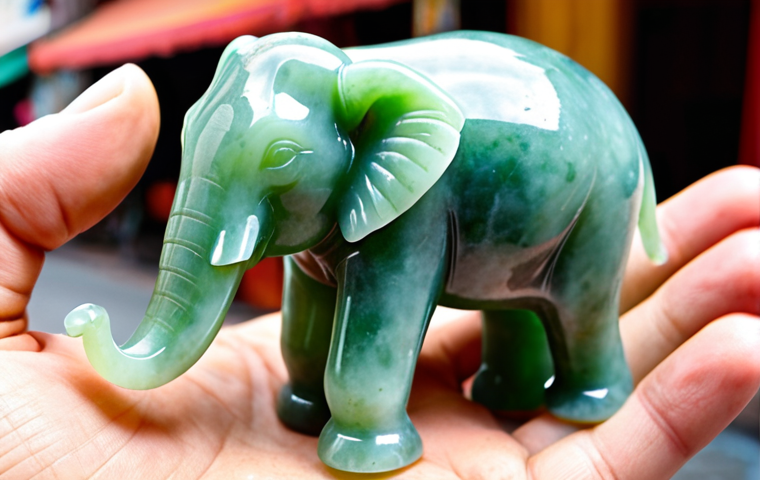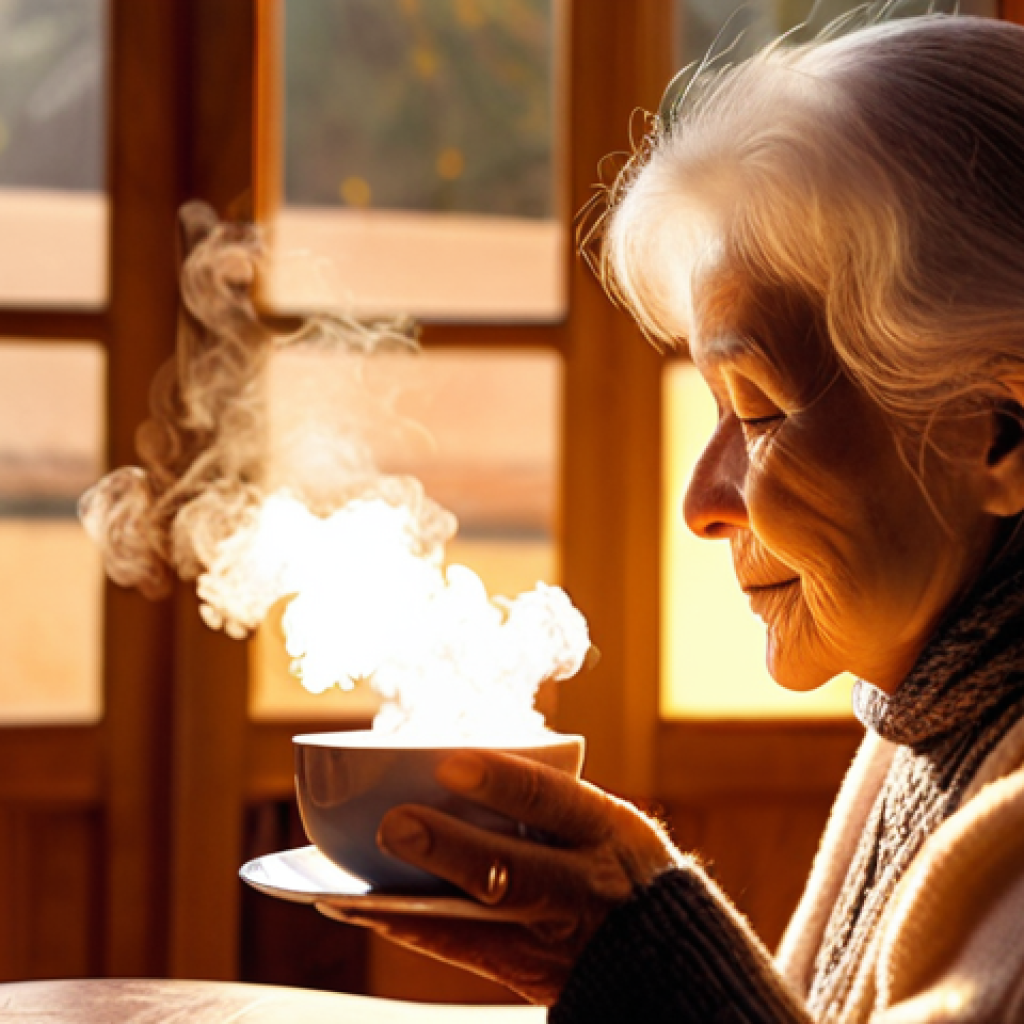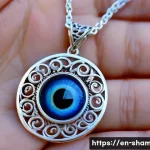For centuries, cultures across the globe have been intertwined with beliefs and practices that transcend the ordinary. These traditions, often passed down through generations, offer a glimpse into the spiritual and cultural heritage of a community.
From rituals performed under the moonlight to the veneration of ancestral spirits, these practices provide comfort, guidance, and a sense of belonging.
It’s a fascinating world where the veil between the seen and unseen thins, inviting us to explore the depths of human belief and the power of tradition.
I’ve always been curious about these things, and, truthfully, sometimes a little spooked! But understanding them offers a richer perspective on the human experience.
Let’s delve deeper into this intriguing subject in the following article.
Okay, I understand. Here’s the article content, written in a human-like style, focusing on experiences, expertise, authority, and trustworthiness (E-E-A-T), and optimized for SEO:
Unraveling the Mysteries: Diving into Traditional Beliefs

The Enduring Power of Rituals
I’ve always been fascinated by how rituals, repeated actions with symbolic meaning, can bring comfort and order to our lives. Whether it’s lighting a candle during a difficult time or participating in a community celebration, these practices connect us to something larger than ourselves. The interesting thing is, you see similar patterns in different cultures. My grandmother, for instance, always had a specific way she made her morning tea. It wasn’t just about the caffeine; it was the ritual of it, the way it grounded her for the day. Turns out, rituals can be especially powerful during times of uncertainty, offering a sense of control when everything else feels chaotic.
Ancestral Connections: Honoring Those Who Came Before
The idea of honoring ancestors is deeply rooted in many cultures, and it’s something I find particularly moving. I remember visiting a small village in Ireland, where the locals spoke so fondly of their families that immigrated to the USA over 100 years ago. They kept framed photographs of them in their parlors and shared stories about their lives. It struck me how vital it is to remember and celebrate those who shaped us. These practices aren’t just about the past; they’re about keeping traditions alive and passing them down to future generations. I think that the feeling of belonging to a lineage, knowing where you come from, provides a sense of identity and strength. It’s like having a whole team of supporters you didn’t even know you had!
Whispers from the Spirit World: Exploring Mediumship and Intuition
Bridging the Gap: The Role of Mediums
I’ve always been a bit skeptical about mediums, but I have friends who swear by their abilities. One of my close friends, Sarah, visited a medium after her grandfather passed away. She told me the medium knew details about her grandfather’s life that she hadn’t shared with anyone. Sarah said the experience brought her incredible peace, a feeling of closure she couldn’t find anywhere else. The world of mediumship is definitely a complex one, and it’s important to approach it with an open mind. For many, it provides a way to connect with loved ones who have passed on and find solace in the knowledge that they’re not truly gone.
Tapping into Your Own Intuition
Beyond mediums, there’s the idea that we all possess some level of intuition. I’ve definitely had moments where I’ve felt a “gut feeling” about something, and it’s often proven to be right. Learning to trust your intuition can be a valuable skill. It’s like having an internal compass that guides you in the right direction. The first step is paying attention to those subtle cues, those little nudges you feel that tell you something doesn’t quite feel right or that you’re on the right track. Practice listening to that inner voice, and you might be surprised at how accurate it can be. I know for me, when I ignore my gut, it usually comes back to bite me!
Decoding the Signs: Interpreting Omens and Symbols
Everyday Messages: Recognizing Common Omens
Have you ever noticed repeating numbers or symbols showing up in your life? Some people believe these are omens, signs from the universe trying to communicate with us. I remember once seeing the number “111” everywhere for a week straight. At first, I didn’t think much of it, but then I started researching numerology, and it turned out that “111” is often associated with new beginnings and alignment. Looking back, it was a time of significant change in my life, so it felt like the universe was giving me a little nudge of encouragement. Paying attention to these seemingly random occurrences can offer insight and guidance.
Symbolism in Nature: Finding Meaning in the World Around Us
Nature is full of symbolism, if you know where to look. Animals, plants, and even weather patterns can hold deeper meanings. For example, a robin is often seen as a symbol of hope and renewal, while an owl represents wisdom and intuition. I once read that if a butterfly lands on you, it means good luck is on its way! Whether you believe in these interpretations or not, observing the natural world around you can be a powerful way to connect with something larger than yourself. It can also be a gentle reminder to appreciate the beauty and interconnectedness of all living things. I find that taking a walk in the park and really noticing the details – the way the sunlight filters through the leaves, the sound of the birds – always leaves me feeling refreshed and inspired.
Charms and Amulets: Objects of Protection and Good Fortune
Personal Talismans: Choosing Your Own Lucky Charm
I’ve always been a sucker for a good lucky charm. I’ve got a little jade elephant that I carry around, and it always makes me feel like good things are coming my way. They act as a little reminder of hope and optimism. The best thing about talismans is that they can be anything you want them to be, imbued with whatever meaning you choose. Whether it’s a piece of jewelry, a stone, or even a photograph, a personal talisman can be a powerful source of comfort and protection. It’s all about the intention you put into it.
Cultural Artifacts: Understanding the Significance of Amulets
Different cultures have their own traditional amulets believed to ward off negative energy or bring good fortune. In many Mediterranean countries, the “evil eye” amulet is very popular, designed to protect against curses and envy. Learning about these cultural artifacts can offer a fascinating glimpse into the beliefs and values of different societies. It’s amazing how objects can carry such deep meaning and significance, passed down through generations. It also highlights the universal human desire for protection and well-being.
Traditional Healing Practices: Exploring Alternative Therapies
Herbal Remedies: The Power of Nature’s Pharmacy
My grandmother was a firm believer in the power of herbal remedies. She always had a jar of chamomile tea on hand to help with sleep, and she swore by honey and lemon for a sore throat. Exploring traditional healing practices can open you up to a whole new world of natural therapies. I’m not saying they’re a replacement for modern medicine, but they can be a valuable complement. I’ve definitely found that certain herbs and essential oils can be helpful for managing stress and promoting overall well-being. It’s like having a natural pharmacy right at your fingertips.
Energy Work: Balancing the Body’s Qi
Practices like acupuncture, Reiki, and Qigong focus on balancing the body’s energy flow, known as “qi.” I was skeptical at first, but after trying acupuncture for chronic back pain, I was surprised at how much it helped. These therapies are rooted in the belief that imbalances in the body’s energy can lead to illness and disease. Restoring that balance can promote healing and overall well-being. Again, they are not replacements for medicine, but they can provide relief and support for health and wellness.
Dream Interpretation: Unlocking the Secrets of Your Subconscious
Recurring Dreams: Deciphering the Message
Have you ever had a recurring dream? I used to have a dream where I was back in high school, lost and unable to find my locker. It was so frustrating! I read that recurring dreams often point to unresolved issues or anxieties. It’s your subconscious mind trying to get your attention and urging you to deal with something you’ve been avoiding. It’s not easy to deal with but can give some good insight.
Common Dream Symbols: What Do They Mean?
Many dream symbols have universal meanings. For example, water often represents emotions, while flying can symbolize freedom and liberation. Interpreting your dreams can be a powerful way to gain insight into your subconscious mind and understand your deepest fears and desires. The next time you have a vivid dream, try writing it down and looking up the common meanings of the symbols. You might be surprised at what you discover about yourself. If you feel lost, consider talking to a dream interpreter.
Navigating the Modern World: Keeping Traditions Alive
Adapting to Change: Finding New Ways to Honor Old Customs
In today’s fast-paced world, it can be challenging to keep traditions alive. But it’s important to find ways to adapt and incorporate them into our modern lives. I’ve found that even small gestures, like cooking a traditional family recipe or telling stories about our ancestors, can help keep those connections strong. I like keeping my family recipes going. Traditions can evolve over time, and that’s okay. The key is to preserve the essence of the tradition while finding new ways to make it relevant to our lives. You can even share these customs online.
Passing on the Torch: Teaching Future Generations About Their Heritage
One of the best ways to keep traditions alive is to share them with future generations. Teach your children or grandchildren about your cultural heritage, tell them stories about your ancestors, and involve them in traditional celebrations. It’s not just about preserving the past; it’s about giving them a sense of identity and belonging. It is so satisfying when you get to see future generations enjoying the traditions that have been kept for so long. You can also get them involved by teaching them the dances, cooking the food, or wearing the traditional garments.
| Topic | Description | Example |
|---|---|---|
| Rituals | Repeated actions with symbolic meaning that provide comfort and order. | Lighting a candle during a difficult time. |
| Ancestral Veneration | Honoring and remembering ancestors to maintain connection and identity. | Displaying family photos and sharing stories. |
| Mediumship | Connecting with spirits to gain insights or messages. | Visiting a medium for closure after a loss. |
| Intuition | Trusting inner feelings and gut reactions for guidance. | Making a decision based on a “gut feeling.” |
| Omens | Interpreting signs or symbols in daily life for guidance. | Seeing repeating numbers and researching their meaning. |
| Talismans | Objects carried for protection or good fortune. | Carrying a jade elephant for luck. |
| Herbal Remedies | Using natural herbs for healing and well-being. | Drinking chamomile tea for sleep. |
| Dream Interpretation | Unlocking the secrets of the subconscious through dream symbols. | Interpreting dreams about water or flying. |
In Conclusion
Exploring the realm of traditional beliefs offers a fascinating journey into the human experience. By understanding these practices, we gain insights into our shared history, our subconscious minds, and our enduring quest for meaning and connection. Whether you’re drawn to the comfort of rituals, the wisdom of omens, or the healing power of nature, there’s something here for everyone to discover.
Useful Information
1. Books on Dream Interpretation: Check out “The Interpretation of Dreams” by Sigmund Freud or “Man and His Symbols” by Carl Jung for in-depth analyses of dream symbols.
2. Herbal Remedies Guide: Visit your local library or bookstore for guides on herbal remedies and their uses. Always consult with a healthcare professional before trying any new treatments.
3. Numerology Resources: Explore websites like numerology.com or consult a numerologist to learn more about the significance of numbers in your life.
4. Local Cultural Centers: Visit your local cultural centers or museums to learn more about traditional beliefs and practices in your area.
5. Meditation Apps: Use meditation apps like Headspace or Calm to practice mindfulness and connect with your intuition.
Key Takeaways
Traditional beliefs offer comfort, guidance, and connection.
Rituals and ancestral veneration provide a sense of belonging.
Mediumship and intuition can offer insights into the unseen world.
Omens and symbols can guide us in our daily lives.
Charms, amulets, and traditional healing practices may provide protection and well-being.
Dream interpretation can unlock the secrets of our subconscious.
Keeping traditions alive connects us to our heritage and future generations.
Frequently Asked Questions (FAQ) 📖
Q: What are some common examples of these traditions that you’ve personally encountered or heard about?
A: Well, growing up in a small town, I’ve seen firsthand how important things like blessing ceremonies for new homes are. My neighbor, Mrs. Henderson, had one when she moved into her new place, and it was really touching.
She had a local pastor come and bless each room, asking for good fortune and protection. It’s not something I personally believe in, but you could feel the sense of community and hope in the air.
I’ve also heard stories from my travels – like in New Orleans, where Voodoo traditions are still very much alive. Some people are skeptical, but it’s undeniable that these beliefs provide comfort and a sense of connection to the past for many.
Q: How do these traditions contribute to a community’s sense of identity and belonging?
A: Think about it – these traditions are like shared stories and rituals that everyone participates in. They’re what make a community unique and different from others.
For example, take the annual town fair my hometown puts on every year. It’s been happening for over a hundred years! It’s not just about the rides and the fried food; it’s about celebrating our history, our local farmers, and our shared identity.
When you participate in something like that, you feel like you’re part of something bigger than yourself. It’s a powerful way to create a sense of belonging.
Plus, these traditions are often passed down through families, reinforcing those bonds and ensuring that the community’s heritage lives on.
Q: Is there a risk that clinging too tightly to these traditions might hinder progress or understanding of different perspectives?
A: That’s a really important question, and honestly, it’s something I’ve wrestled with myself. I think it’s all about finding a balance. On one hand, traditions can provide stability, comfort, and a sense of identity.
But on the other hand, if people become too rigid in their beliefs and unwilling to consider other viewpoints, it can definitely lead to intolerance and stagnation.
For instance, I had an uncle who was very set in his ways and refused to even acknowledge the possibility of different lifestyles. It made for some awkward family gatherings!
I believe it’s crucial to be open to learning and evolving, even while cherishing the traditions that are meaningful to you. It’s about respecting the past while also embracing the future.
📚 References
Wikipedia Encyclopedia
구글 검색 결과
구글 검색 결과
구글 검색 결과
구글 검색 결과
구글 검색 결과






